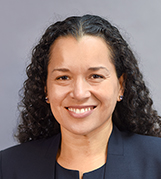Responding to U.S. DOJ Actions Against Latin American Individuals
The U.S. Department of Justice is increasing its scrutiny on the activities of Latin American individuals, and its aggressive enforcement actions may embroil many in what can be overstated allegations. This can pose a threat to the target’s assets, liberty and reputation, so they need to work to push back as early as possible.
Individuals throughout Latin America have come under increasingly aggressive scrutiny from U.S. law enforcement, including the U.S. Department of Justice (DOJ). Many may become targeted in what can be overstated allegations.
These accusations can rapidly spiral into global asset freezes and seizures, INTERPOL Red Notices and extradition requests, financial sanctions, arrest and trial. Targets need to work with cross-border counsel knowledgeable in the DOJ’s tactics to push back as early as possible.
U.S. Enforcement Against Latin America is Heating Up
The DOJ’s cross-border enforcement actions have become more aggressive as it has gained expanded tools. For example, the United States Northern Triangle Enhanced Engagement Act (which focuses on El Salvador, Guatemala and Honduras), the Anti-Money Laundering Act and the Kleptocracy Asset Recovery Act include new sanction powers, compliance and reporting requirements on financial institutions and expanded whistleblower programs. A new registry of ultimate beneficial owners (UBO) in the U.S. is also set to take effect in 2024.
U.S. prosecutors may target individuals without understanding all the facts. To prevent investigations from spiraling out of control, potential targets should take proactive action:
- Get the Facts Straight. When prosecutors try to target individuals and conduct from outside their immediate jurisdiction, there is a risk they can misinterpret facts and make faulty assumptions. At-risk targets and their advisors should proactively prepare a factual narrative to set the story straight. For example, these can include copies of contracts and transaction records, evidence that wealth was earned through lawful business activity, and documentation that certain key assets were purchased through lawful means.
- Correct the Record. This factual narrative can be most effective if used strategically. Targets should consider informing investigators of any misinterpretations as soon as possible. In some cases involving political persecution, outreach to other government bodies, international human rights groups and the press can further assist in correcting the factual record. Parallel legal proceedings in other jurisdictions to obtain court decisions affirming the legitimacy of offshore trusts and other asset structures can also be favorable additions to the record and further protect a target.
- Be Proactive. If prosecutors fail to recognize their oversights, targets should anticipate potential actions escalating and prepare accordingly. For example, targets who travel should have counsel with relevant cross-border expertise on standby in the event of searches, questioning, or even arrests when crossing borders.
As the DOJ aggressively ramp up its cross-border enforcement efforts, Latin American individuals potentially risk having their liberty, assets and reputations come under threat over possible misunderstandings and misinterpretations by U.S. prosecutors. A pre-emptive multijurisdictional strategy, grounded by a team of former DOJ government lawyers, can make the biggest difference in helping at-risk targets protect themselves.
About Kobre & Kim
Kobre & Kim is a global law firm focusing on cross-border disputes and investigations, often involving fraud and misconduct. Our capabilities include:
- Our unique position to help clients in Brazil and Latin America through our teams in São Paulo and Miami that routinely acts in cross-border government investigations involving foreign authorities.
- The deep government investigations experience with former U.S. Department of Justice prosecutors based in Washington, New York and Miami.
- Our onshore and offshore lawyers – including an integrated group of U.S. litigators, offshore lawyers qualified in key jurisdictions, such as BVI, Cayman, Dubai and Hong Kong– helping clients identify vulnerable assets and mitigate reputational harm caused by investigations.
We also provide offensive and defensive cross-border litigation and crisis management strategies to ultra-high-net-worth individuals (UHNWIs) with global business interests to preserve their assets, liberty, and reputation.






